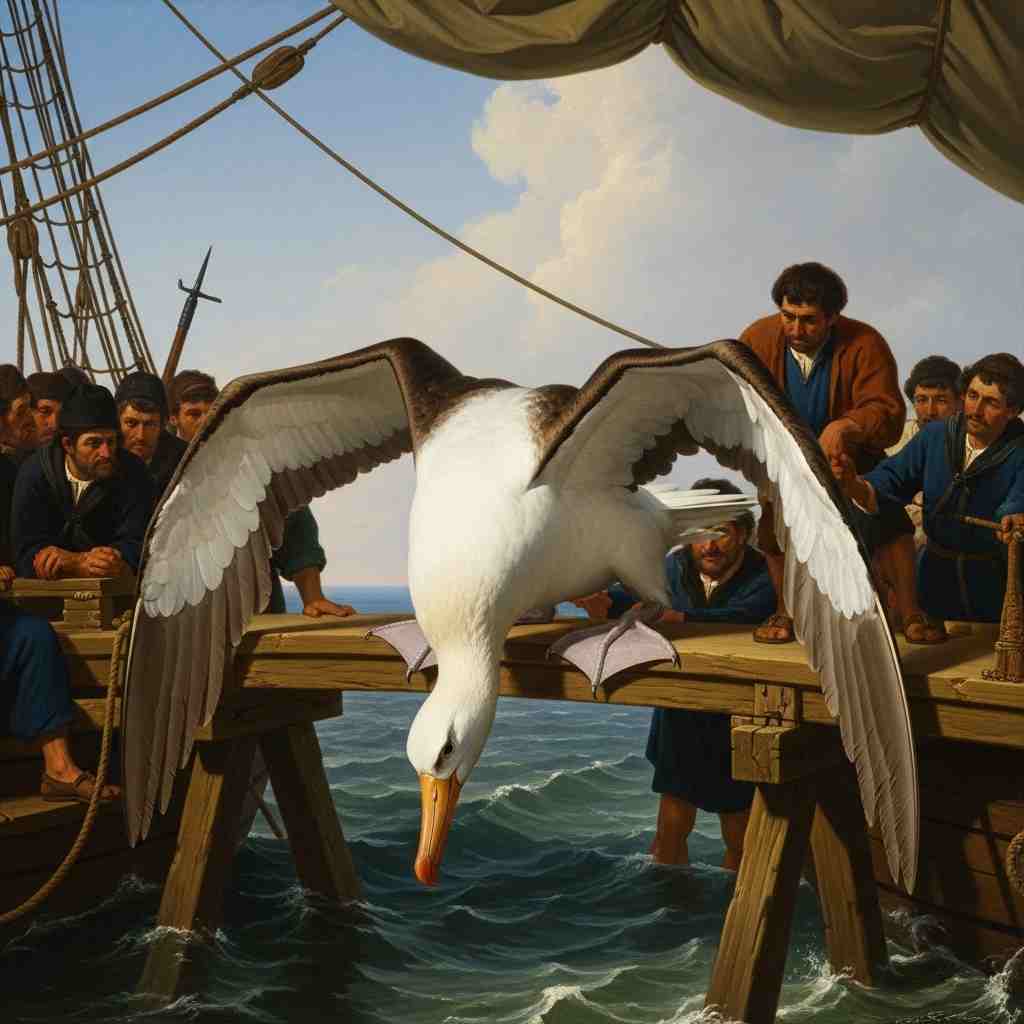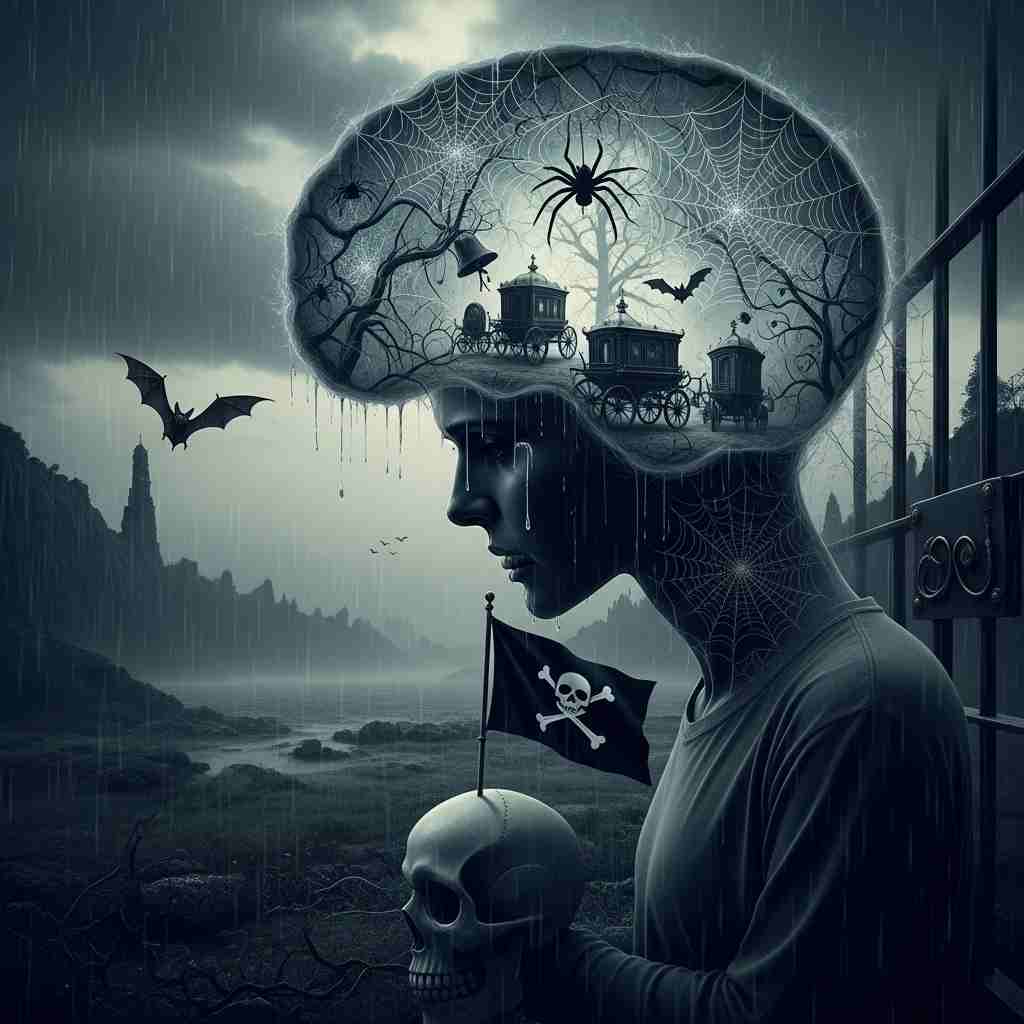3 Poems by Charles Baudelaire
1821 - 1867
Charles Baudelaire Biography
The Paradox of Beauty and Decadence
Few poets have embodied the contradictions of artistic genius as vividly as Charles Baudelaire (1821–1867), the father of modern poetry. A man of exquisite sensitivity and self-destructive tendencies, Baudelaire transformed the literary landscape with his masterpiece, Les Fleurs du Mal (The Flowers of Evil), a work that scandalized Paris, led to his prosecution for obscenity, and ultimately secured his place among the immortals of literature. His poetry—steeped in themes of beauty, decay, eroticism, and existential despair—bridged Romanticism and Symbolism while anticipating the fragmented consciousness of modernism.
Baudelaire’s life was as turbulent as his verse: plagued by financial ruin, addiction, and ill health, he nevertheless crafted some of the most enduring and influential poetry in the French language. This biography explores his tumultuous journey, from his privileged but troubled childhood to his final years in poverty and illness, while analyzing the revolutionary power of his work.
Early Life and Formative Years (1821–1841)
Birth and Family Background
Charles-Pierre Baudelaire was born on April 9, 1821, in Paris, France. His father, Joseph-François Baudelaire, was a former priest turned civil servant and amateur artist who instilled in his son an early love for art and literature. His mother, Caroline Archimbaut-Dufays, was significantly younger than her husband—a fact that would later shape Baudelaire’s complex emotional life.
When Baudelaire was six, his father died, leaving him deeply attached to his mother. This bond was shattered when Caroline remarried in 1828 to Jacques Aupick, a rigid military officer who would become a symbol of authority and repression in Baudelaire’s eyes. The young poet despised his stepfather, and their fraught relationship fueled his rebellious spirit.
Education and Early Rebellion
Sent to the prestigious Lycée Louis-le-Grand, Baudelaire excelled in literature but chafed under discipline. His refusal to conform led to his expulsion in 1839. Despite this, he passed his baccalaureate exams and briefly studied law at the École de Droit before abandoning academia for the bohemian life of Paris’s Latin Quarter.
By his early twenties, Baudelaire had already embraced the role of the poète maudit (cursed poet), indulging in opium, alcohol, and the company of artists, prostitutes, and radicals. His family, alarmed by his behavior, sent him on a voyage to India in 1841, hoping to reform him. The trip was cut short, but its exotic impressions would later resurface in his poetry, particularly in his fascination with foreign landscapes and sensual escapism.
Literary Beginnings and the Making of a Masterpiece (1842–1857)
Inheritance and Financial Ruin
Upon returning to Paris, Baudelaire came into a modest inheritance but quickly squandered it on lavish living, art, and his mistress, Jeanne Duval, a Haitian-born actress and dancer who became his muse and tormentor. Their volatile relationship—marked by passion, infidelity, and her eventual illness—inspired some of his most haunting poems, including "La Chevelure" (The Hair) and "Le Serpent qui Danse" (The Dancing Snake).
By 1844, his family, exasperated by his debts, placed his finances under legal control, leaving him in lifelong poverty. Forced to work as a critic and translator (notably of Edgar Allan Poe, whose dark romanticism deeply influenced him), Baudelaire honed his aesthetic philosophy while struggling to complete his own poetry.
The Birth of Les Fleurs du Mal
Baudelaire’s reputation as a critic grew with essays like The Painter of Modern Life (1863), where he defined modernity as "the ephemeral, the fugitive, the contingent." But his true legacy began with the 1857 publication of Les Fleurs du Mal, a collection that redefined poetry.
The book was structured in six sections, exploring themes of:
-
Spleen and Ideal (the tension between spiritual longing and earthly despair)
-
Parisian Tableaux (urban decay and fleeting beauty)
-
Wine and Drugs (artificial paradises and escapism)
-
Revolt (blasphemy and defiance)
-
Death (the final escape)
Poems like "Correspondences" (which introduced the concept of synesthesia—"Perfumes, colors, and sounds respond to one another") and "The Albatross" (a metaphor for the poet’s alienation) showcased his revolutionary style: dense symbolism, musicality, and a fusion of the sacred and profane.
Scandal and Censorship
The French government, outraged by the book’s depictions of lesbianism ("Lesbos"), Satanism ("The Litanies of Satan"), and decadence, prosecuted Baudelaire for "offenses against public morality." Six poems were banned, and he was fined 300 francs—a humiliation that haunted him. Yet the scandal cemented his legend.
Later Years: Decline and Legacy (1858–1867)
Exile, Illness, and the Final Works
Plagued by syphilis, debt, and depression, Baudelaire spent his last years in Belgium, where he lectured on art and worked on Le Spleen de Paris (Paris Spleen), a collection of prose poems that expanded his vision of urban alienation.
His health deteriorated rapidly; by 1866, he suffered a stroke that left him partially paralyzed and aphasic. He returned to Paris, where his mother cared for him until his death on August 31, 1867, at age 46.
Posthumous Recognition
Though Baudelaire died in obscurity, his influence grew exponentially. The ban on Les Fleurs du Mal was lifted in 1949, and today he is celebrated as a pioneer of modernist poetry, inspiring figures like Rimbaud, Mallarmé, T.S. Eliot, and even punk aesthetics.
Critical Analysis: The Power and Paradox of Baudelaire’s Poetry
Themes and Innovations
Baudelaire’s work is defined by dualities:
-
Beauty and Decay ("A Carcass" juxtaposes love with rotting flesh)
-
Sacred and Profane ("Hymn to Beauty" worships a destructive muse)
-
Urban Isolation ("The Swan" mourns a lost Paris)
His use of symbolism and synesthesia paved the way for later movements, while his embrace of artificial paradises (drugs, art, sex) foreshadowed postmodern existentialism.
Strengths and Criticisms
Baudelaire’s brilliance lies in his lyrical intensity and psychological depth, yet some critics argue his pessimism can feel oppressive. His misogyny (evident in portrayals of Jeanne Duval and the "femme fatale") remains controversial.
Conclusion: The Eternal Rebel
Charles Baudelaire’s life was a battleground of ecstasy and torment, and his poetry remains a mirror to the modern soul—restless, disillusioned, yet fiercely alive. As he wrote in "The Voyage":
"To the depths of the Unknown to find something new!"
In that endless search, Baudelaire carved his name into eternity.
This text was generated by AI and is for reference only. Learn more
Username Information
No username is open
Unique usernames are free to use, but donations are always appreciated.
Quick Links
© 2024-2025 R.I.Chalmers (V2Melody).

All music on this site by R.I.Chalmers (V2Melody) is licensed under a Creative Commons Attribution-NonCommercial 4.0 International License.
Attribution Requirement:
When using this music, you must give appropriate credit by including the following statement (or equivalent) wherever the music is used or credited:
“Music by R.I.Chalmers (V2Melody) – https://v2melody.com”
Support My Work:
If you enjoy this music and would like to support future creations, donations are always welcome but never required.
Donate



